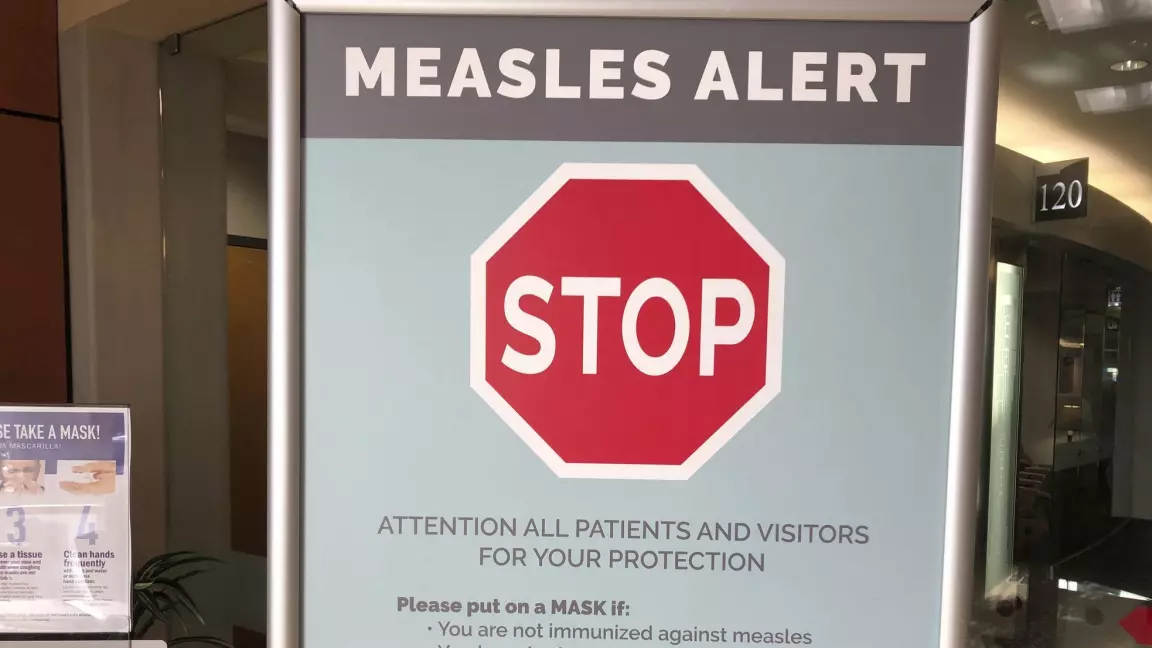Health
Ontario reports more than 1800 new coronavirus cases, 14 more deaths – CP24 Toronto's Breaking News

Ontario is reporting more than 1,800 new COVID-19 cases and 14 more deaths but Thursday’s case count reflects an overestimate due to a processing error.
Provincial health officials logged 1,824 new infections in the last 24 hours, up from the 1,723 new cases recorded on Wednesday.
According to the Ministry of Health, today’s total case count includes an overestimate of new cases from the Middlesex-London Health Unit.
“Due to a data processing error, the number of new cases for Middlesex-London Health Unit in today’s report (127 cases) represents cases reported over the previous three days,” a spokesperson said in an email to CP24.
Middlesex-London recorded zero new cases on Wednesday, a reduction of 10 on Tuesday and 14 on Monday. Many of the more recent cases from that region may involve a major COVID-19 outbreak at the London Health Sciences Centre.
Most of the province’s new cases continue to be from the GTA, particularly in the hot spots of Toronto and Peel and Region.
“Locally, there are 592 new cases in Peel, 396 in Toronto and 187 in York Region,” Health Minister Christine Elliott tweeted on Thursday.
Elsewhere in the GTA, Durham Region logged 57 new infections, down from 124 a day ago and Halton recorded 68 new cases, up from 45 on Wednesday.
Five of Ontario’s 34 public health units are recording zero new cases of the virus.
The seven-day rolling average now stands at 1,768 up from 1,427 a week ago.
Provincial health officials processed nearly 52,900 tests in the past 24 hours, up from more than 44,200 tests a day ago. More than 58,300 tests are currently under investigation.
The rise in testing helped drop the province’s positivity rate to at least 4.4 per cent, compared to 4.7 per cent a day ago, according to provincial health officials.
The province logged 1,707 new cases on Tuesday and 1,746 on Monday.
There are 1,541 more recoveries from the virus across the province bringing the total number of active cases to 14,795. A total of 3,712 Ontarians have now died from the virus.
Of today’s fatalities, 11 were long-term care home residents.
There are currently 116 long-term care homes with an active outbreak of the novel coronavirus in Ontario.
To date, there have been more than 121,700 cases of the virus in Ontario since January and 103,239 recoveries.
Ontario hits 200-bed threshold for COVID-19 patients in ICU
The number of patients hospitalized with the virus continue to climb across the province amid a second wave of the disease.
There are currently 666 patients hospitalized with the virus in the province, up from 656 on Wednesday.
Of those hospitalized patients, 195 are in an intensive care unit (ICU) and 107 are breathing with the help of a ventilator, according to provincial health officials.
However, Dr. Michael Warner, the medical director of critical care at Michael Garron Hospital, told CP24 that the province reached the 200-bed threshold for COVID-19 patients in ICUs on Thursday, roughly five days earlier than provincial modelling data predicted.
The Ford government released its latest modelling on Nov. 12 and said that in all of their scenarios within roughly six weeks the 200-bed threshold would be reached, and that the 450-bed threshold would be reached under the worst case scenario.
The grim milestone comes after Elliott said Ontario hospitals are not “in a crisis” situation during a press conference on Wednesday.
“There is no question that many Ontario hospitals are under stress right now, particularly in the lockdown areas,” she said. “To say they are in crisis is not the case. Alberta is in crisis when you have to have double cohorts in a single intensive care room. That’s a crisis. We are not at that stage in Ontario.”
Meanwhile, GTA residents are anxiously waiting to learn if more regions will enter a lockdown, particularly the regions of York and Halton where cases continue to rise.
Toronto and Peel Region entered a 28-day lockdown on Nov. 23 to curb the spread of the virus in the hot spots.
Under the province’s grey “lockdown” level of it’s colour-coded COVID-19 response framework, restaurants can only offer takeout and delivery service and non-essential businesses can only provide curbside pickup. Gyms, movie theatres and casinos must also close their doors.
Health
Quebec successfully pushes back against rise in measles cases – CBC.ca


Quebec appears to be winning its battle against the rising tide of measles after 45 cases were confirmed province-wide this year.
“We’ve had no locally transmitted measles cases since March 25, so that’s good news,” said Dr. Paul Le Guerrier, responsible for immunization for Montreal Public Health.
There are 17 patients with measles in Quebec currently, and the most recent case is somebody who was infected while abroad, he said.
But it was no small task to get to this point.
Le Guerrier said once local transmission was detected, news was spread fast among health centres to ensure proper protocols were followed — such as not letting potentially infected people sit in waiting rooms for hours on end.
Then about 90 staffers were put to work, tracking down those who were in contact with positive cases and are not properly vaccinated. They were given post-exposure prophylaxis, which prevents disease, said Le Guerrier.
From there, a vaccination campaign was launched, especially in daycares, schools and neighbourhoods with low inoculation rates. There was an effort to convince parents to get their children vaccinated.
Vaccination in schools boosted
Some schools, mostly in Montreal, had vaccination rates as low as 30 or 40 per cent.
“Vaccination was well accepted and parents responded well,” said Le Guerrier. “Some schools went from very low to as high as 85 to 90 per cent vaccination coverage.”
But it’s not only children who aren’t properly vaccinated. Le Guerrier said people need two doses after age one to be fully inoculated, and he encouraged people to check their status.
There are all kinds of reasons why people aren’t vaccinated, but it’s only about five per cent who are against immunization, he said. So far, some 10,000 people have been vaccinated against measles province-wide during this campaign, Le Guerrier said.
The next step is to continue pushing for further vaccination, but he said, small outbreaks are likely in the future as measles is spreading abroad and travellers are likely to bring it back with them.
Need to improve vaccination rate, expert says
Dr. Donald Vinh, an infectious diseases specialist from the McGill University Health Centre, said it’s not time to rest on our laurels, but this is a good indication that public health is able to take action quickly and that people are willing to listen to health recommendations.
“We are not seeing new cases or at least the new cases are not exceeding the number of cases that we can handle,” said Vinh.
“So these are all reassuring signs, but I don’t think it’s a sign that we need to become complacent.”
Vinh said there are also signs that the public is lagging in vaccine coverage and it’s important to respond to this with improved education and access. Otherwise, microbes capitalize on our weaknesses, he said.
Getting vaccination coverage up to an adequate level is necessary, Vinh said, or more small outbreaks like this will continue to happen.
“And it’s very possible that we may not be able to get one under control if we don’t react quickly enough,” he said.
Health
Pregnant women in the Black Country urged to get whooping cough vaccine – BBC.com


Pregnant women urged to get whooping cough vaccine
Pregnant women in the Black Country are being urged to get vaccinated against whooping cough after a rise in cases.
The bacterial infection of the lungs spreads very easily and can cause serious problems, especially in babies and young children.
The Black Country Integrated Care Board (ICB) is advising pregnant women between 16 and 32 weeks to contact their GP to get the vaccine so their baby has protection from birth.
The UK Health Security Agency warned earlier this year of a steady decline in uptake of the vaccine in pregnant women and children.
Symptoms of the infection, also known as “100-day cough”, are similar to a cold, with a runny nose and sore throat.
Sally Roberts, chief nursing officer for the ICB, which covers Wolverhampton, Dudley, Walsall and Sandwell, said anyone could catch it, but it was more serious for young children and babies.
“Getting vaccinated while you’re pregnant is highly effective in protecting your baby from developing whooping cough in the first few weeks of their life – ideally from 16 weeks up to 32 weeks of pregnancy,” she said.
“If for any reason you miss having the vaccine, you can still have it up until you go into labour.”
Follow BBC West Midlands on Facebook, X and Instagram. Send your story ideas to: newsonline.westmidlands@bbc.co.uk
Health
Measles cases stabilize in Montreal – CityNews Montreal


The number of measles cases has stabilized, according to the Montreal Public Health.
Since March 25, there have been no contaminations reported within the community.
“Our teams have identified all contact cases of measles,” said media relations advisor Geneviève Paradis. “It’s a laborious task: each measles case produces hundreds of contacts.”
All community transmission cases since February 2024 have been caused by returning travelers who were either unvaccinated or partially vaccinated.
Currently, there are 18 measles cases in Montreal – with 46 total in Quebec. This according to the April 18 figures from the provincial government.
“With the summer vacations approaching, if you’re travelling, it is essential to check if you are protected against measles,” explained Paradis.
According to Montreal Public Health, a person needs to have received two doses after the age of 12 months to be immunized against the virus.
They’ve launched a vaccination campaign throughout the region, and currently, 11,341 people have been vaccinated against measles in Montreal between March 19 and April 15.
Vaccination is also being provided in schools and at local service points.
“The vaccination operation is under the responsibility of the five CIUSSS of the territory,” concluded Paradis.
-



 Tech19 hours ago
Tech19 hours agoCytiva Showcases Single-Use Mixing System at INTERPHEX 2024 – BioPharm International
-
News21 hours ago
Tim Hortons says 'technical errors' falsely told people they won $55K boat in Roll Up To Win promo – CBC.ca
-



 Politics24 hours ago
Politics24 hours agoFlorida's Bob Graham dead at 87: A leader who looked beyond politics, served ordinary folks – Toronto Star
-



 Health15 hours ago
Health15 hours agoSupervised consumption sites urgently needed, says study – Sudbury.com
-



 Tech21 hours ago
Tech21 hours agoAaron Sluchinski adds Kyle Doering to lineup for next season – Sportsnet.ca
-



 Science24 hours ago
Science24 hours agoRecord breaker! Milky Way's most monstrous stellar-mass black hole is sleeping giant lurking close to Earth (Video) – Space.com
-
News14 hours ago
2024 federal budget's key takeaways: Housing and carbon rebates, students and sin taxes – CBC News
-
Tech20 hours ago
Nintendo Indie World Showcase April 2024 – Every Announcement, Game Reveal & Trailer – Nintendo Life





